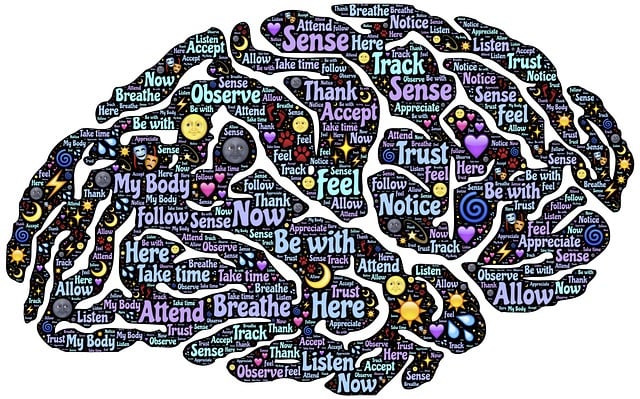Superior Functional Neurological Disorder (SFND) therapy leverages Resilience, Flexibility, and Motivation (RFM) methodologies to offer a transformative treatment approach. By integrating mindfulness, emotional intelligence exercises, and community support, this holistic method enhances brain function, improves quality of life, and provides lasting recovery tools for SFND patients. Recent case studies highlight significant anxiety relief and confidence boosts, inspiring healthcare professionals to achieve better outcomes through innovative RFM strategies.
Discover the transformative power of RFM (Resilience, Flexibility, and Mobility) in superior functional neurological disorder therapy. This article delves into how RFM exercises enhance recovery by strengthening the brain’s resilience against damage, improving flexibility in response to challenges, and promoting physical mobility. We explore its role in therapy, impact on patient outcomes, and provide practical steps for therapists to integrate RFM into sessions. Additionally, captivating case studies highlight the success of combining RFM with resilience training.
- Understanding RFM and Its Role in Neurological Disorder Therapy
- The Impact of Resilience Building Exercises on RFM Implementation
- Practical Steps for Integrating RFM into Therapy Sessions
- Case Studies: Success Stories of RFM and Resilience Training
Understanding RFM and Its Role in Neurological Disorder Therapy

The Impact of Resilience Building Exercises on RFM Implementation

Resilience building exercises play a pivotal role in enhancing the effectiveness of RFM (Recovery-Focused Methodology) implementation. These exercises are designed to strengthen individuals’ ability to cope with stress, adversity, and trauma, which is crucial for those dealing with conditions like Superior Functional Neurological Disorder (SFND). By integrating practices such as mindfulness meditation into therapy sessions, patients can develop emotional healing processes that promote stability and flexibility in the face of challenges. This not only supports their recovery journey but also fosters a sense of empowerment and self-efficacy.
Community outreach program implementation is another strategic element that leverages resilience building exercises. These programs create supportive networks where individuals with SFND or similar conditions can connect, share experiences, and learn from one another. Such social support is invaluable in reinforcing emotional healing and encouraging adherence to therapeutic regimens. In the context of RFM, these initiatives contribute to a holistic approach that addresses not just the symptoms but also the underlying causes of disorder, ultimately paving the way for lasting recovery and improved quality of life.
Practical Steps for Integrating RFM into Therapy Sessions

Integrating RFM (Resilience, Flexibility, and Motivation) into therapy sessions is a strategic approach to enhancing Superior Functional Neurological Disorder (SFND) treatment outcomes. Therapists can start by teaching clients practical resilience-building exercises tailored to their specific needs. These might include mindfulness techniques to manage stress and anxiety, fostering emotional intelligence through self-awareness exercises, and promoting healthy conflict resolution strategies. By incorporating these skills, individuals with SFND gain better coping mechanisms for dealing with daily challenges.
During sessions, therapists should encourage clients to set achievable goals, focusing on small victories to boost motivation. Flexibility is key; adjusting treatment plans based on individual progress ensures a personalized experience. Regular practice of RFM exercises can significantly improve depression prevention efforts and overall emotional well-being. This integrated approach not only addresses the symptoms of SFND but also equips individuals with lifelong tools for navigating life’s obstacles.
Case Studies: Success Stories of RFM and Resilience Training

In recent years, case studies showcasing the transformative power of RFM (Resilience, Functional, and Neurological Disorder) therapy have gained significant traction. These success stories highlight the effectiveness of integrating mental illness stigma reduction efforts into comprehensive treatment plans. For individuals grappling with superior functional neurological disorders, anxiety relief and confidence boosting are often key outcomes. Through innovative approaches, therapists are navigating complex cases, leading to remarkable improvements in patients’ overall well-being.
The RFM framework has proven especially beneficial in challenging conditions, demonstrating its potential across diverse populations. These case studies not only serve as a source of inspiration but also offer valuable insights for healthcare professionals. By adopting these strategies, mental health practitioners can expect to see improved outcomes, fostering a more inclusive and supportive environment that eases the journey towards recovery, even in the face of significant obstacles.
Implementing RFM (Resilience, Flexibility, and Mastery) exercises in therapy sessions has proven to be a powerful approach for enhancing Superior Functional Neurological Disorder Therapy. By combining these techniques with traditional treatment methods, therapists can offer patients a more comprehensive and effective toolkit to manage their conditions. The case studies presented highlight the success of this integrated strategy, demonstrating its potential to improve symptoms and significantly impact patients’ lives. With further research and refinement, RFM-focused therapies hold great promise as a game-changer in neurological disorder treatment.









